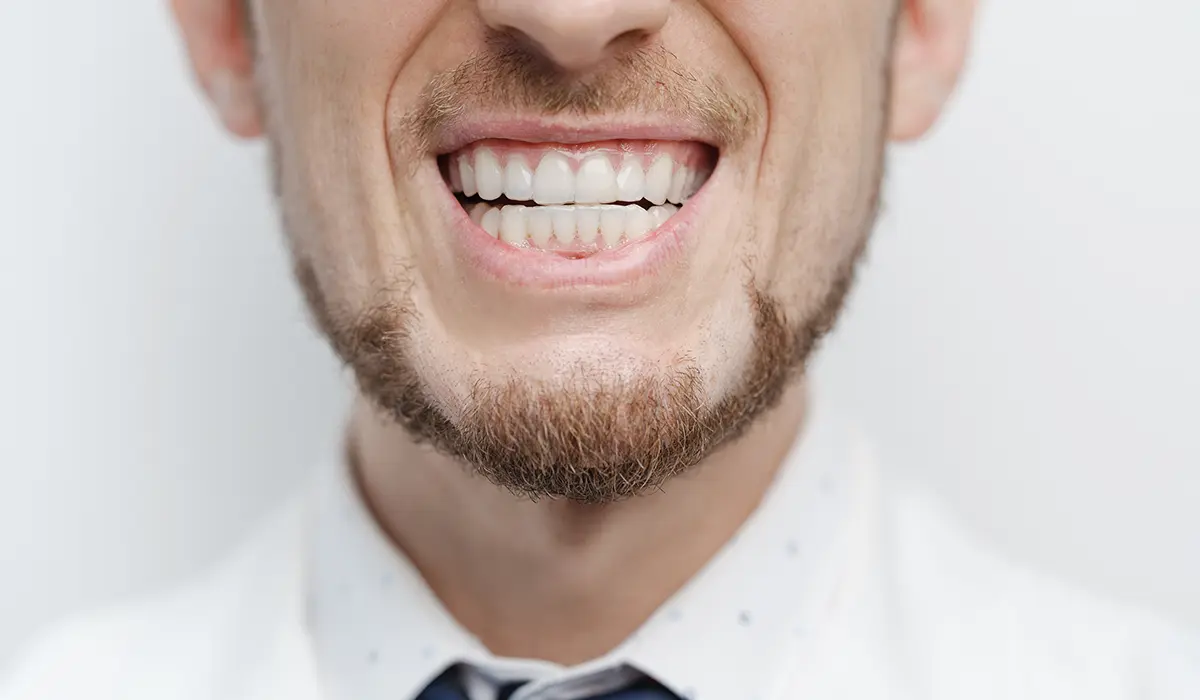What Is Teeth Grinding (Bruxism) and Why Does It Happen?
Teeth grinding, medically known as bruxism, is a common condition that affects millions of people worldwide. It involves the involuntary grinding, clenching, or gnashing of teeth, typically during sleep but sometimes while awake. Although occasional grinding might not cause harm, chronic bruxism can lead to serious dental issues, jaw pain, and even long-term oral health complications if left untreated.
Types of Bruxism
There are two primary types of bruxism:
- Sleep Bruxism – This occurs during sleep and is often linked to other sleep-related disorders, such as snoring or sleep apnea.
- Awake Bruxism – This happens during the day, often in response to stress, concentration, or anxiety. People may clench their jaw or grind their teeth without realising it.
Common Symptoms of Teeth Grinding
Bruxism may go unnoticed for a long time, especially if it occurs during sleep. However, the following symptoms are often associated with the condition:
- Worn-down, flattened, or chipped teeth
- Increased tooth sensitivity
- Jaw pain or tightness in the jaw muscles
- Headaches or earaches, especially in the morning
- Disrupted sleep (for you or your partner)
- Indentations on the tongue
If you experience any of these signs regularly, it’s important to speak with a dental professional for proper diagnosis and treatment.
Why Does Teeth Grinding Happen?
The exact causes of bruxism can vary from person to person. In many cases, it is the result of a combination of physical, psychological, and genetic factors. Here are some of the most common contributors:
1. Stress and Anxiety
One of the leading causes of bruxism is emotional stress. People who are under pressure or dealing with anxiety often clench or grind their teeth as a subconscious coping mechanism. This is particularly true for awake bruxism.
2. Sleep Disorders
Sleep bruxism is frequently associated with sleep disorders like obstructive sleep apnea (OSA). Individuals with sleep apnea may experience interrupted breathing, leading to micro-awakenings and involuntary muscle activity such as teeth grinding.
3. Abnormal Bite or Misaligned Teeth
Dental issues such as an improper bite (malocclusion), missing teeth, or crooked teeth can contribute to bruxism. The misalignment may cause the jaw muscles to overcompensate, leading to grinding or clenching.
4. Lifestyle Factors
Certain lifestyle habits have also been linked to a higher risk of bruxism, including:
- Excessive caffeine or alcohol consumption
- Smoking or using recreational drugs
- High levels of physical or emotional stress
5. Medications and Medical Conditions
Some medications, particularly antidepressants such as selective serotonin reuptake inhibitors (SSRIs), have been linked to increased teeth grinding. Neurological conditions like Parkinson’s disease and Huntington’s disease can also play a role.
How Is Bruxism Diagnosed?
A dentist is usually the first to detect signs of bruxism during a routine dental check-up. They may notice unusual wear patterns on the teeth, jaw tenderness, or other physical signs. In some cases, additional tools like a sleep study or bite analysis may be used to determine the severity and underlying causes.
Treatment Options for Teeth Grinding
Fortunately, there are several effective treatments available to manage bruxism and minimise its impact:
- Custom Mouth Guards: Also called night guards, these are worn during sleep to protect the teeth from grinding damage.
- Stress Management: Techniques such as meditation, therapy, exercise, and relaxation can reduce anxiety-driven bruxism.
- Dental Correction: In cases where tooth misalignment is the cause, orthodontic treatment or reshaping teeth may help.
- Botox Injections: In severe cases, Botox can help relax the jaw muscles and prevent involuntary clenching.
- Behavioral Therapy: Learning awareness techniques and biofeedback can help reduce daytime grinding.
When to See a Dentist
If you suspect you might be grinding your teeth—especially if you’re experiencing pain, sensitivity, or sleep disturbances—it’s best to consult a dentist. Early diagnosis can help prevent more serious complications such as cracked teeth, gum recession, or temporomandibular joint (TMJ) disorders.
Conclusion
Teeth grinding, or bruxism, may seem like a minor issue at first, but over time it can lead to significant oral health problems and discomfort. Understanding the root causes—whether physical, psychological, or lifestyle-related—is key to effective treatment. The good news is that with the right dental care and stress management, bruxism can be successfully managed or even eliminated. Don’t ignore the signs—your teeth (and jaw) will thank you.
For more information on Teeth Grinding contact Eternal Youth Medical Aesthetics.

